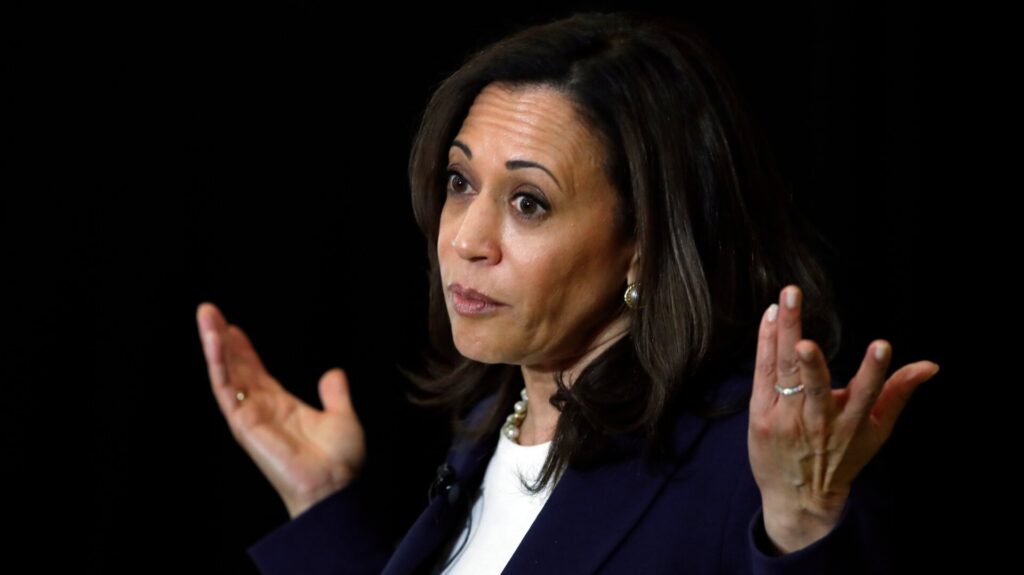Over the past week, Kamala Harris said she plans to hit the “reset” button on the cryptocurrency industry. There is currently discord between cryptocurrency supporters and the Biden-Harris White House over perceptions that the government is unfairly targeting their industry. Now, Harris, who has emerged as the Democratic presidential nominee, is seeking to thaw relations.
According to the Financial Times, members of Harris’ team have “reached out to top crypto companies” in recent days, including Coinbase, Ripple Labs and stablecoin company Circle. The plan appears to be an effort to drum up support from the tech industry as Harris runs for the White House. Harris also apparently contacted billionaire Mark Cuban for advice on “cryptocurrency policy.” But Harris may still have a long way to go, as her opponent Donald Trump appears to have become the de facto favorite of the web3 community.
At last week’s Bitcoin conference, Trump drew cheers by gushing about how great he would make the cryptocurrency. “If cryptocurrency is going to define the future, I want it mined, minted and manufactured in the United States,” Trump said, suggesting he has a less than stellar understanding of the concept he’s harping on. Trump also made additional promises, including that if elected he would fire current Securities and Exchange Commission Chairman Gary Gensler (who has been labeled a threat for his regulatory actions against cryptocurrency companies) and Ross Ulbricht had his sentence commuted.
Trump has the backing of some of the cryptocurrency industry’s biggest names, most notably the non-Facebook founders the Winklevoss twins. Both brothers have been very vocal about their disdain for the Biden-Harris administration and their support for Trump. Last week, Tyler Winklevoss penned a dramatic post on X, accusing the Biden-Harris administration of being “unwilling to engage with our industry in good faith beyond lip service ” and described wealthy cryptocurrency tycoons like him as victims of the government.
“The Biden administration has openly declared war on cryptocurrencies over the past few years,” Winklevoss ranted in a post. “It has weaponized multiple government agencies to bully, harass and prosecute the best players in our industry in an effort to destroy it. The actions of this administration are a completely unprecedented abuse of power, entirely at the expense of twisted political gain.” Innovation, American taxpayers and the American economy,” the billionaire complained.
Harris’ failure to attend a cryptocurrency conference attended by Trump was also seen as an unforgivable offense. “She couldn’t even take the first step and start mending the fence,” Winklevoss said in another article. “Our industry will not forget this. We will be ruthless in November.
Obviously, you can say a lot of negative things about Tyler Winklevoss, although a modest amount of regulatory scrutiny (which the cryptocurrency industry desperately needs, plagued by endless scams and scandals) would seem to amount to something form of regulatory review. Great job, Taylor.
Of course, one of the reasons Winklevoss might be so excited by the specter of government regulation is that his company has been the target of regulatory action multiple times over the past few years. In January last year, the U.S. Securities and Exchange Commission (SEC) accused Gemini and its business partner Genesis of offering unregistered securities to investors through a scheme that promoted extremely high interest rates on deposits. New York Attorney General Letitia James subsequently sued the two companies, accusing them of defrauding hundreds of thousands of customers.
Presumably, in the Winklevoss family’s view, these government actions are persecutionis not just the result of regulators doing their job and protecting consumers from predatory corporate behavior.
After the Harris campaign said it wanted to “reset” its relationship with cryptocurrencies, the Winklevosses rejoined the chat, although their tone didn’t change much. Cameron Winklevoss posted: “Beware the big bluff. Harris and her advisers are working to “reset” the crypto industry. Respecting the Vice President’s time, let us be clear here: @KamalaHarris, Don’t bother unless you’re ready to take quick, bold, and concrete action. You can’t burn bridges in four years and expect to rebuild them with words alone.
It’s worth considering just how much help Harris could get from someone like this. In June of this year, the Winklevosses announced that they had donated $1 million in Bitcoin to Trump’s re-election and would vote for him in November. Likewise, it’s worth asking what Harris really hopes to gain by aligning himself with an industry that, for all its mystique, is nothing more than a less-regulated mutation of an already decidedly deregulated and depraved financial industry. body. Critics have tried to dissuade Harris from pandering to what is nothing more than a global-scale scam staffed by fraudsters and criminals.
Still, by extending an olive branch to an industry that has become almost an adversary, Harris may be hoping to use the cryptocurrency issue to signal a broader openness to other parts of the tech industry, such as the election-centered low-frequency debate currently underway. civil war. With the likes of Marc Andreessen and Elon Musk publicly declaring their support for Donald Trump, Harris may seek to salvage relationships with Silicon Valley tycoons who have yet to be overwhelmed by the red pill. relation.
Unfortunately, to do that she has to at least appear to be subservient to their business interests, which might not look too good for the rest of us. Even ostensibly moderate politicians, like billionaire LinkedIn founder Reid Hoffman, are trying to turn their influence in high-stakes elections into benefits that can be cashed in after November (Holland Huffman recently asked Harris to fire FTC Chairwoman Lina Khan, who investigated several companies in which Huffman had an interest).

